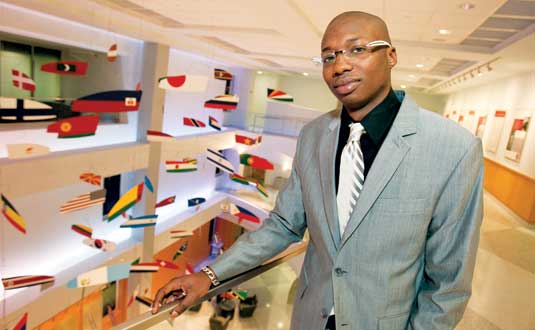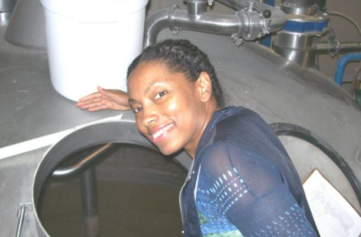
After graduating in commerce and accounting, Lorna Rutto took the safe and secure route and found a job in banking. Three years in, Rutto realized her passion for the environment could not be ignored. A need to solve the growing plastic waste concern in her country, Kenya, caused Rutto to resign from her comfortable banking job in 2009 to start EcoPost, a small plastic recycling business.
According to smallstarter.com:
“EcoPost uses plastic waste collected from dumpsites and garbage cans across Nairobi to manufacture fencing posts. These posts, which are used to fence houses and forest reserves, are becoming a preferred alternative to timber. So far, her innovative business has created over 7,000 fencing posts, 500 new jobs, generated more than $ 150,000 in yearly revenues, saved over 250 acres of forests and removed more than 1,000 tons of plastic waste from the environment.”
After graduating from Temple University with a bachelor’s of business administration in international business entrepreneurship with a minor concentration in economics, Niang returned to his home country, Mali, to make a difference. Along with his brothers, Salif Romano Niang and Mamadou Niang, the trio founded Malô in 2010 to fight extreme poverty and malnutrition in Mali by encouraging farmers to fortify rice with vital minerals and vitamins and to connect them with production, processing and markets.
According to reports, 81 percent of children under five years old are anemic in Mali, and half of their deaths are attributable to malnutrition. Malo, which means rice in Bambara, one of West Africa’s popular languages, also built a cutting-edge processing rice mill in Ségou—in the heart of one of Africa’s biggest rice growing regions–that provides fortified rice at a cheaper price than non-fortified rice.
The brothers also founded Tambaroua Business Farming, which “specializes in precision farming, combining solar-powered energy, drip-by-drip irrigation, and net house technologies to establish an eco-friendly and high yielding farm. TBF produces vegetables, fruits, and breeds livestock.”



